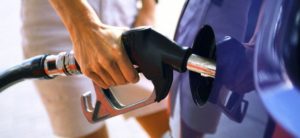
Fuel economy is a major consideration when buying a car. One of the most common questions car buyers ask is “Should I buy a car with a petrol or diesel engine?” Well, there’s no simple answer; it depends on a number of factors.
Many car buyers have got themselves tangled up in false economic arguments when trying to choose between a petrol or a diesel engine when buying a new or used car. The correct choice is very much dependent on your specific circumstances and driving style.
For this article, we are not considering hybrid or purely electric cars, because it complicates things massively and will be the subject of a separate article later on, but let’s consider a straightforward example of diesel vs. petrol.
We will use the official urban and combined fuel economy figures (extra-urban figures are usually useless), and assume the buyer keeps the car for three years, covering 10,000 miles per year. Fuel prices are provided by petrolprices.com as of today (5 March 2012). We have to assume that fuel and registration costs stay at 2012 prices for the next 3 years (if only!) and that insurance costs are broadly similar for each car (which they should be).
Petrol:
- Golf Match 1.4 TSI 122hp –₦4,750,000
- Value after 3 years – ₦1,750,000 (40% of new car price)
- Fuel economy, urban – 34.4 mpg
- Fuel economy, combined – 45.6 mpg
Diesel:
- Golf Match 2.0 TDI 140hp – ₦5,250,000
- Value after 3 years – ₦2,250,000(45% of new car price)
- Fuel economy, urban – 46.3 mpg
- Fuel economy, combined – 58.9 mpg
So the diesel car is more expensive by nearly ₦500,000 when new, but should be worth about ₦400,000 more after three years. It costs less to register and should use less fuel on average.
Total cost of buying and running each car for three years (excluding insurance, servicing and maintenance) are as follows:
Petrol:
- Using Urban fuel economy figures – ₦4,ooo,oo0
- Using Combined fuel economy figures – ₦2,800,000
Diesel:
- Using Urban fuel economy figures – ₦ 3,500,000
- Using Combined fuel economy figures – ₦ 3,700,000
So the diesel Golf is ₦75,000/year cheaper to run using the urban figures, and ₦50,000/year cheaper to run using the combined figures. In the overall of a ₦5,000000 car, this is hardly a significant difference, and doesn’t take into account individual driving circumstances. Fuel economy tests are not really representative of real-world driving, and very few drivers ever match the official figures. Below I will detail the differences in the way a petrol engine drives compared to a diesel engine.
What can be said for certain is that the higher your annual mileage, the better the diesel becomes. The above calculation is based on 10,000 miles per year, which is considered average. If your mileage is higher than that, the diesel car’s advantage is greater. If your mileage is lower, the figures become even closer.
The above example is also very specific to that car and those two engines. If you are looking at a different car, then you need to use the relevant figures for the engines available for that model.
What is most important of all is properly considering how you will really use the car for as long as you own it, but here is a very general breakdown of the generic differences between petrol and diesel engines:
- A petrol engine usually produces more power than a comparable diesel, making it more responsive at very low revs, so pulling away from rest at the lights or at a T-junction is usually quicker in a petrol engine. A diesel engine will have to work harder and therefore use more fuel to keep up.
- A diesel engine usually has more torque than a petrol engine, making it better at carrying heavy loads. So a diesel engine maintains its performance and economy much better when you load up a car with a full load of passengers and a bootful of luggage, whereas a petrol engine will struggle noticeably in comparison, losing performance and using more fuel.
- A diesel engines tends to be more economical in steady-state driving, such as on a motorway, when the engine is at its optimal point and cruising along comfortably. A petrol engine will have to work harder to maintain its momentum and will use more fuel.
- Stop-start town driving is inefficient for any kind of engine, so there is much less difference in fuel economy between a petrol and diesel engine around town. Especially if you have to work the diesel engine harder under acceleration.
- A petrol engine produces fewer overall emissions per litre of fuel burned than a diesel engine. But a diesel engine will usually use fewer litres, so be may more eco-friendly for a given distance (internationally measured in grams per kilometre – g/km). But that’s assuming optimal conditions, because…
- Short journeys are very inefficient for any kind of engine, as cold engines use more fuel and pollute a lot more than warm engines. This applies to both petrol and diesel engines, and means neither engine approaches anywhere near its ‘official’ fuel economy figures. A journey has to last at least 10-15 minutes before the fuel economy starts to hit its best figure, and prior to that both engines are using lots of fuel.
- Diesel-engined cars tend to cost more than petrol-engine cars when new. However, their resale value is usually better (this is very dependent on fuel prices at the time, so is only ever a prediction of what will happen in the future).
- The sound of a diesel engine is still off-putting to some people, although they are much more refined than they used to be.
